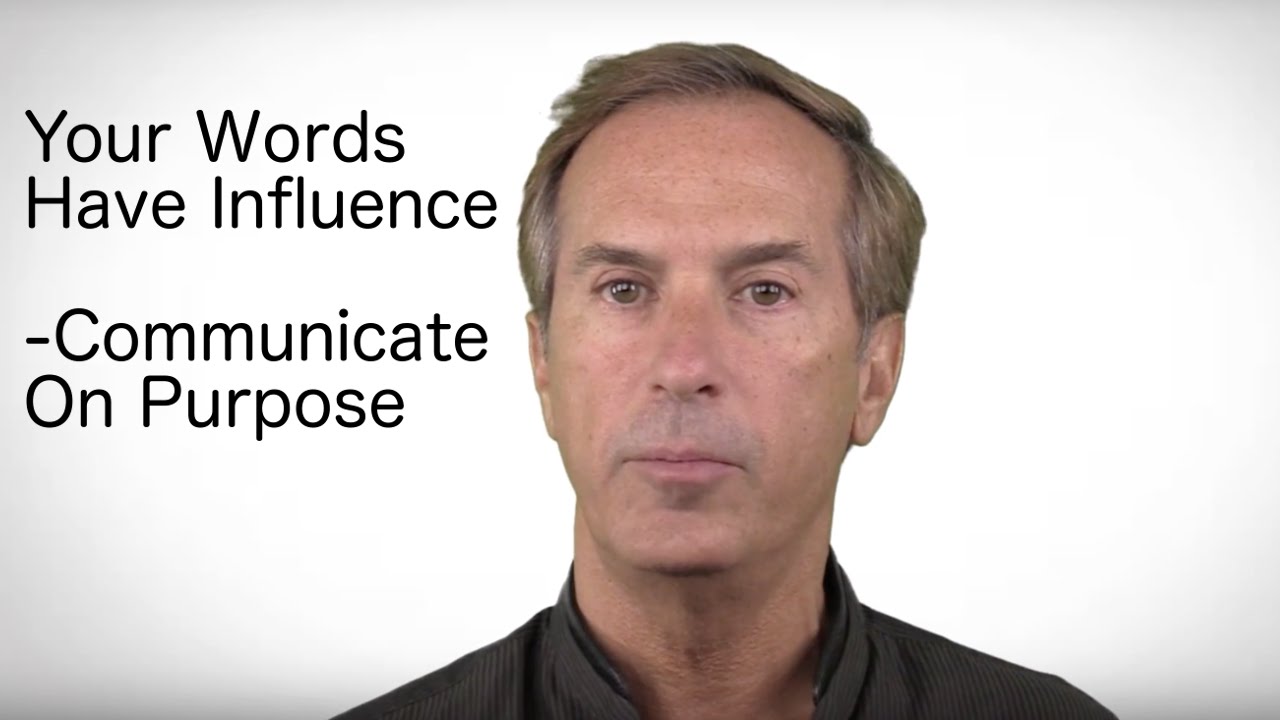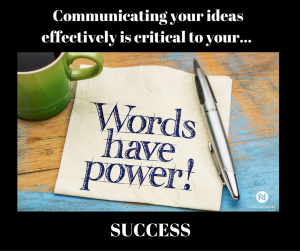Summary
Some of the most powerful tools at your disposal are your words. Nobody else is going to be able to communicate the power of your business venture better than you can. It is increasingly common for business professionals to spend considerable amounts of time presenting and speaking on their work for various audiences, ranging from potential consumers to venture capitalists considering investing in your idea.
In order to maximize the potential for your earnings, it’s important to develop some comfort with delivering the story of your ideas in a concise and compelling manner.
Read on to learn more on how you can use your words to deliver impactful messages and share your work with wider audiences than you previously imagined.
Transcript
You hate wasting money. You despise wasting time. But what about your words?
In short…
Being able to effectively communicate your ideas, both in writing and in public speaking, is one of the most important skills for any successful person. The watchword here is brevity – far too many aspiring thought leaders fail to recognize the importance of maximizing as few words as possible. In a time of increasing options for how people can spend their time online and what content they have at their fingertips, it is more important than ever that you can quickly and succinctly distill any message you want to relay to an audience. In many cases, you will only have one or a limited number of opportunities to reach an audience you are targeting. It’s on to you to do everything you can do to maximize the potential power of these interactions.
Getting Over The Nerves
It’s perfectly normal to be uncomfortable with speaking in public if you don’t have a background doing so. It is something that you will likely need to come to terms with, however, in order to progress to the top rungs of your field. It seems like today it’s expected for those in every industry to be able to speak to their expertise – the growing popularity of Ted Talk style events has amped up the bar considerably.
Don’t let your nervousness paralyze you. The good news is that audiences respond best to speakers who convey authenticity. This means that you don’t need to be the most polished or smooth speaker to ever grace a stage to win them over. By just conveying a sense of who you really are and transmitting your expertise in a way that holds value for audiences, you will quickly be able to win them over.
When you really explore what is at the root of your nervousness, you will likely find that you don’t actually have a whole lot to be afraid of. The worst case scenario is some temporary embarrassment – but more likely than not, the audience will actually be rooting for you to succeed and will attempt to share that sentiment with you. They are in your corner!
It will help you enormously if you can spend some time practicing presentations and speeches before receptive audiences, perhaps a trusted confidant or two. Or you might even want to consider video taping your remarks so that you can study your presentation and identify where you might find areas of improvement before the big day of your pitch. As in any endeavor, practice really is everything.
Apply the same techniques that have provided you success in other areas of business. If you have thoroughly researched your market and potential competitors, why not apply the same level of research to the venue you are speaking at and what to expect from the audience? If you can identify what kind of knowledge or information they are looking for out of your subject and also identify any potential touchy subjects that you should avoid, you will be more confident that you can handle any unexpected developments or questions that may emerge from your presentation.
Take the time to thoroughly structure your remarks in advance so that you don’t find yourself stumbling around in the moment looking for where to turn next. A general rule of thumb for a best practice is to prepare an opening, three key points, and a conclusion. This might seem like too simplistic a narrative for some complex subjects, but the exercise of narrowing them down into a simple structure will help you more succinctly and skillfully relay your key messages.
Strategies For Successful Communication
Set yourself up to succeed by doing everything you can to feel comfortable. This even extends to the clothes you wear. You don’t want to be entertaining any fleeting thoughts pondering if you selected the right outfit to be scrutinized in by the audience. Go with clothes that you feel comfortable in and that you know hit well, complimenting your style. It will mean there is one less factor of the presentation that you need to be spending time worrying about. The same notion goes for making sure that you get a good night’s sleep and thorough rest before the presentation so that you are 100% in the moment on the big day.
Eliminating these distractions is important, because if they are distracting you, the audience will notice them as well, andyour want your crowd to be completely focused on the substance and key message of your remarks. You can help achieve that by telling stories, which has consistently been shown as one of the most effective means of communicating complex information. By all means, use facts and statistics to lend weight to your arguments, but continue to also find ways to highlight the human part of the issue you are discussing. Don’t just recite a dry list of numbers, but help the audience get to know specific people and how they are affected. This means that your marketing pitch might highlight the ways that your service helps make your customers’ lives easier or creates more income and job opportunities for your employees.
This focus on outcomes and benefits is important to note. Many copy ad materials make the fundamental flow of recounting, in numbing detail, the features on various products and services – while failing to highlight how these features can help the consumer achieve something or lead a better life. I assure you that your audience is almost invariably going to be primarily concerned with how exactly your product or service can help them to lead a better life. Resist the temptation to geek out over technology or process if it can’t be tied back into the primary pitch of why the audience should care.
You can’t assume that you have achieved your aim just because you thoroughly understand why a business practice or piece of software is important. You must bring your audience along on that journey as well. This is where my counsel for market research and audience analysis is so important. You’ll want to have a good idea of how familiar and fluent in the subject matter that your audience is. This preparation will allow you to avoid the twin pitfalls of either talking down to a sophisticated audience or completely bewildering a novice crowd that is unfamiliar with the jargon you are using. In either event, speaking plainly and clearly will help you to break through what you seek to express. Remember that effective presentations are very often about simplification – think of them as peeling back the layers on an onion to reveal the core message behind all of the technology and business. Break down your business to its most simple essence and you will find that even an audience of beginners should be able to accompany you on the journey.
What steps have you taken to increase the power of your words? How do you prepare to ensure that presentations that you deliver are as impactful as possible and reach the widest possible audience?
You can also learn more by visiting my website: tonyneumeyer.com and registering to receive free trainings articles and more. Also subscribe to my YouTube channel and follow me on Facebook. You can get your copy of The 7 Minute Millionaire and check out my other books here: https://tonyneumeyer.com/books/.



